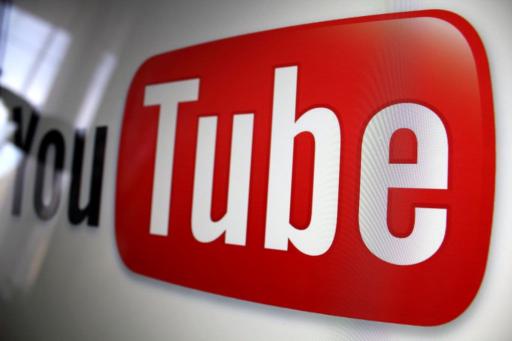Instagram overhears my offline chats! Is it possible?
"Instagram is listening to you and uses the contents of your offline discussions for targeting ads", thinks entrepreneur and developer Damián Le Nouaille. One day he saw an ad in his Instagram news feed featuring a product that he had never googled, liked or discussed on social networks. He talked about it with his friends in a cafe, though.
He conducted an experiment in order to find out whether ads in Instagram could really be targeted on offline conversations topics. He went hiking with his family, and had an iPhone in low battery mode in the pocket.
During the walk, he discussed with his sister a micro projector that connects to a smartphone via Bluetooth and lets project videos from the camera roll on walls and surfaces. It was an only conversation about a specific product he had. The next day he saw an Instagram ad of the projector he had described.

Le Nouaille supposes that Instagram records audio of nearby conversations, but does not transfer it online to the company’s servers, instead of this the app processes it on the device. Audio gets converted to a text, the keywords are highlighted and used for targeting ads. Probably it’s the audio processing libraries in the code of the app that make it as "heavy" as 77 Mb.
But it is also possible that it's the audio itself that is sent to Instagram’s servers when a good network connection is available. In any case, from the point of privacy protection, Le Nouaille believes, the analysis of private conversations without a user’s consent is unacceptable. He advices not to give Instagram a constant permission to access the smartphone’s microphone, but to give the permission when necessary and revoke after the task is completed.
Le Nouaille is not the only person who suspected Instagram in overhearing. And Instagram is not the only app suspected in such tricks.
A year ago a writer named Deidra Riggs reported similar observations: Instagram ads targeted on subjects of offline conversations. Four of the people who commented on her post said that it had happened to them too. One of the four saw an ad not about things he’d spoken of, but about a thing his friend had spoken to him. The man was quite confused about an ad saying "Cord Clamping for expectant parents". He neither was nor even wanted to be a father, never searched anything about babies or pregnancy.

Facebook mobile app also requests a microphone access. Stories about mystical matches of offline discussions and social network ads keep appearing online for several years.
Kelli Burns, a mass communication professor at the University of South Florida, not only told "Independent" that she thinks Facebook is listening to what’s said around, but also made an experiment in order to confirm or refute the hypothesis. But a Facebook representative claimed that the app "does not use microphone audio to inform advertising or News Feed stories in any way".
Facebook Help section, however, informs users that the audio from the microphone is used to identify what is happening around the phone. Exactly, what musiс users listen to, which movies and shows they watch, and so on, in order to base content recommendations on this information. But these sounds are not recorded.
A BBC columnist asked her friends, software developers, to try building an app that would listen to ambient discussions and convert the audio to text.
The developers in a couple of days created an app prototype, installed it on their device and chatted near it watching their words appear on the screen "typed" to a text file.

Adding ads targeted on the keywords from their speech turned out to be an easy task. The developers said that they used the existing functionality of Google Android, "re-used a lot of code that's already out there". Their app was quite modest about the resources: no significant battery drain or data usage.
The main arguments against the hypothesis of apps listening to people’s chats are the following:
- Facebook and the other apps of the company (WhatsApp, Instagram) have quite enough data for ad targeting. They possess an immense volume of information about users’ connections, behavior, location, online browsing, and so on.
- there could be other explanations of ads matching chat topics: a person could have googled a product and forgot about it; a person’s interlocutors could have googled or engaged in social media with the information, and the ad was shown to the person because of their connection or mutual interests.
- unlikely and strange things, funny coincidences, happen much more often than we think. The peculiarities of evolution and the structure of our brain compel us to seek explanations for everything and to connect everything in causal relationships.
- voice analysis, especially in real time, demands too many resources, is, perhaps technically complicated, and does not promise enough profit to recoup the investment (the developers from the BBC experiment worked only with Android, the task might be much more challenging in iOS)
But those who believe in overhearing have their points:
- It is not so hard to implement after all. Facebook already uses a number of technologies for working with the sounds caught by a microphone. The company has, for example, a patent on a system of hybrid offline/online speech translation.
- Large IT companies are crazy about data collection and analysis. They would process anything they have access to, the more the better. They need different types of data to develop new algorithms, to search for new approaches and solutions that will let them win the competition on their market.
- Advertising is having a hard time fighting for the audience’s attention. Marketers want not only views and clicks, but sales, subscriptions, leads and so on. Advertisers crave for new opportunities and strategies, and the business of Facebook is completely dependent on online advertising. Facebook and other companies with a similar business model may be ready to go very far in the struggle for the effectiveness of advertising.
- IT companies constantly test new ideas and tools, so even if speech analysis is not yet used as a usual part of ad mechanics, it might be being tested on a limited user group.
We can’t say for sure what is really happening, but one thing is clear. It is for you to decide if you are ready to let companies listen to your conversations and use this information in some way.
We recommend to manage the permissions of the apps on your phone thoroughly and consciously. If an app requests a permission to use your geolocation, microphone, camera, files on the device -- think first whether you really need the functions demanding this access, and what is more important, the function or the potential harm and inconveniences of having your private data sent to ad networks and other "third parties".





















































